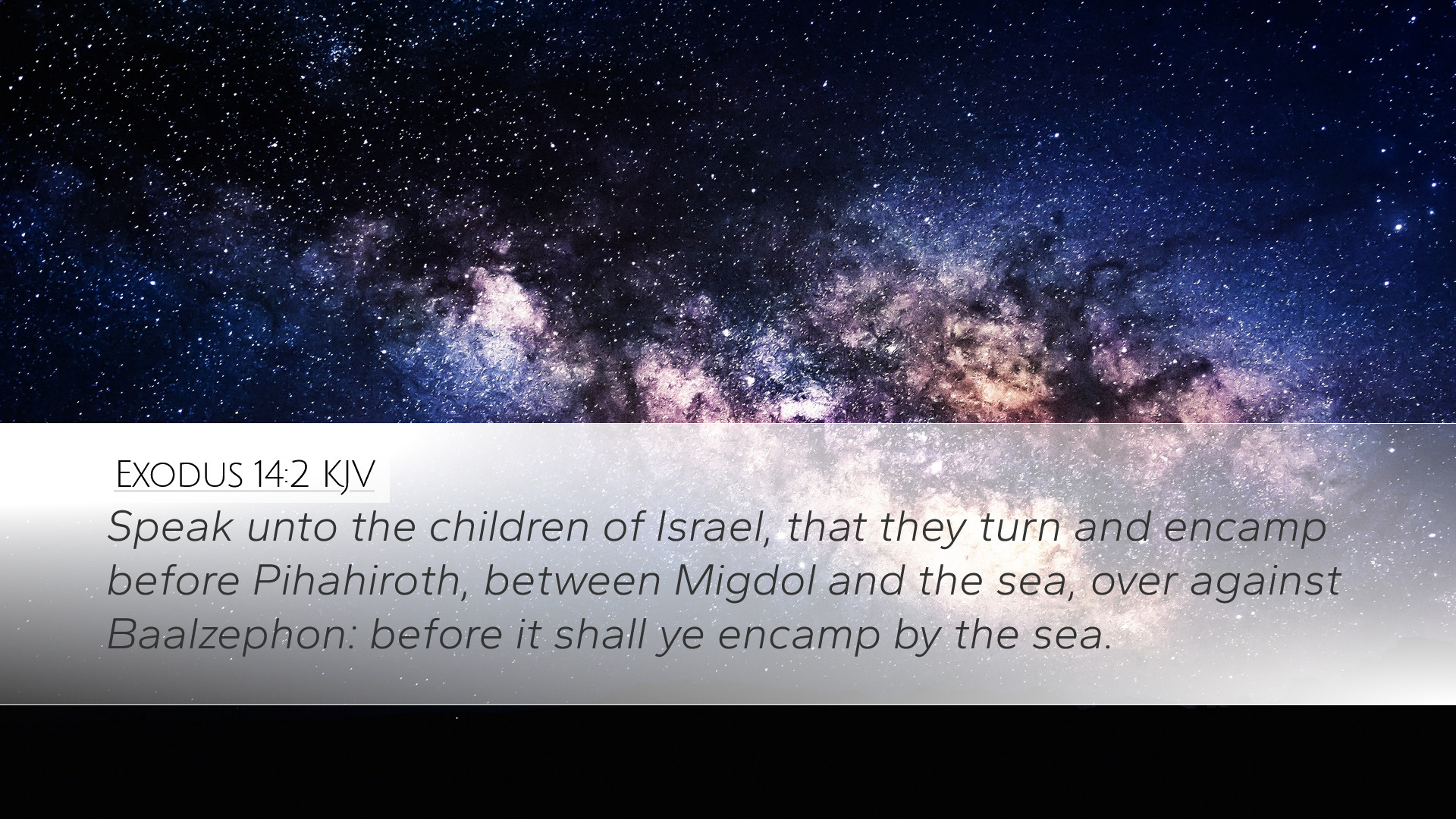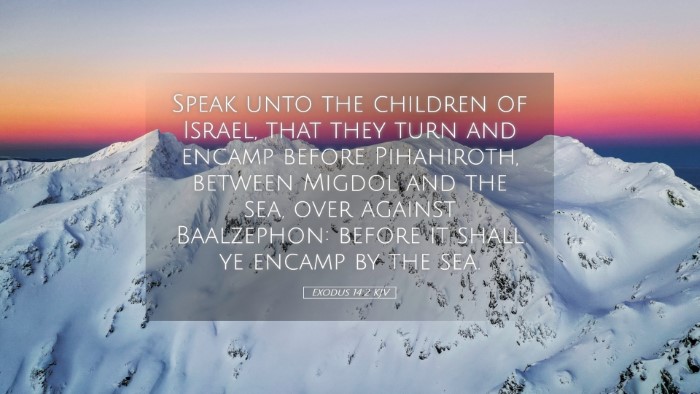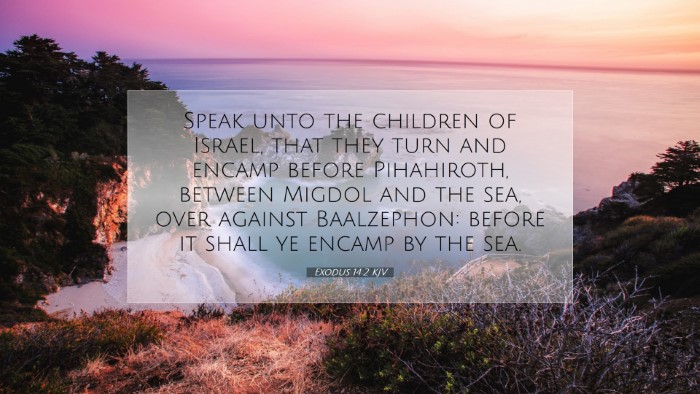Exodus 14:2 - Biblical Commentary
Bible Verse: "Speak unto the children of Israel, that they turn and encamp before Pi-hahiroth, between Migdol and the sea, over against Baal-zephon: before it shall ye encamp by the sea." (Exodus 14:2, KJV)
Introduction
This pivotal verse in the Exodus narrative serves as a divine instruction to the Israelites as they face a critical moment of transition. The context of this command, the geographical significance of the locations mentioned, and the spiritual implications for God’s people are rich with meaning and provide profound lessons for pastors, students, theologians, and biblical scholars alike.
Contextual Background
Exodus 14 marks a climactic moment in the Israelite exodus from Egypt. As God's chosen people, they find themselves at the brink of freedom, yet facing the daunting challenge of the Red Sea in front of them and the advancing army of Pharaoh behind them. This verse illustrates not just God's command but also His guidance in the midst of potentially overwhelming circumstances.
Divine Command and Guidance
Matthew Henry emphasizes the importance of divine direction in the life of the believer. God instructs Moses to communicate His plans clearly to the Israelites, demonstrating that His leading is both intentional and strategic. The choice of encamping at Pi-hahiroth was not arbitrary; rather, it showcases God’s sovereign control over their journey.
Albert Barnes notes that the locations mentioned are significant. Pi-hahiroth means "the mouth of the gorges or bays," which suggests a place of seclusion and protection. The Israelites were being led to a location where their situation would seem dire, yet God had a plan to reveal His power and deliverance.
Geographical Significance
Each location within this verse carries meaning:
- Pi-hahiroth: Identified as a narrow passage possibly leading to the Red Sea, it symbolizes the constraints and trials God would lead His people through.
- Migdol: A fortress that suggests the protection God offers, denoting both a physical and spiritual stronghold.
- Baal-zephon: A pagan deity worshipped by the Egyptians, this location signifies the challenge of idolatry and the omnipotence of Yahweh as He confronts the powers of Egypt.
- The Sea: Representing challenges that seem insurmountable, the sea also becomes the stage for God’s miraculous deliverance.
Theological Insights
The encampment of the Israelites before the sea serves as a profound metaphor for faith and trust in God during times of crisis.
Faith Under Pressure
Adam Clarke highlights the faith required in the face of adversity. God’s command for the Israelites to set down their roots at the sea—and to trust in His salvation—illustrates the necessity of faith when situations appear hopeless. The actualization of faith often comes during the trials when we are instructed to stand firm and wait for God's intervention.
God’s Sovereignty Over Adversity
This verse illustrates God’s master plan in orchestrating the events that lead to the deliverance of the Israelites. Matthew Henry elucidates the nature of God’s intention behind these circumstances: to magnify His name and demonstrate His power, not only to Israel but also to the Egyptians. The display of God’s power is never arbitrary; it serves His purposes and embodies His glory.
Applications for Believers Today
The instructions given in this verse equip modern believers with valuable lessons about divine trust and reliance.
Trusting God’s Directions
When faced with uncertainty—much like the Israelites were—it is essential for believers to seek God’s guidance. The prevailing theme of divine leadership offers comfort and assurance. Albert Barnes encourages believers to recognize that even in seemingly dire straits, God knows the path ahead and that obedience to His word leads to ultimate victory.
Confronting Idols and Challenges
The placement of the Israelites in the shadow of Baal-zephon signifies a confrontation with false security. Adam Clarke draws attention to the believer's need to identify and confront the idols in their lives. Just as God led Israel toward their challenges, He calls believers today to face the giants in their own lives with faith and determination.
Conclusion
In summary, Exodus 14:2 encapsulates a moment of divine instruction, geographic significance, and spiritual depth. Through the reflections of notable commentaries, it becomes evident that God’s ways often lead us through challenging paths toward a greater reveal of His glory and salvation. Pastors and theologians can draw upon these insights to encourage congregations and students, reminding them that God’s guidance is always present, even when we find ourselves at the murky edge of life’s challenges. This passage calls believers to trust wholeheartedly in God’s leading and to prepare for the miraculous interventions that God is poised to enact in their lives.


